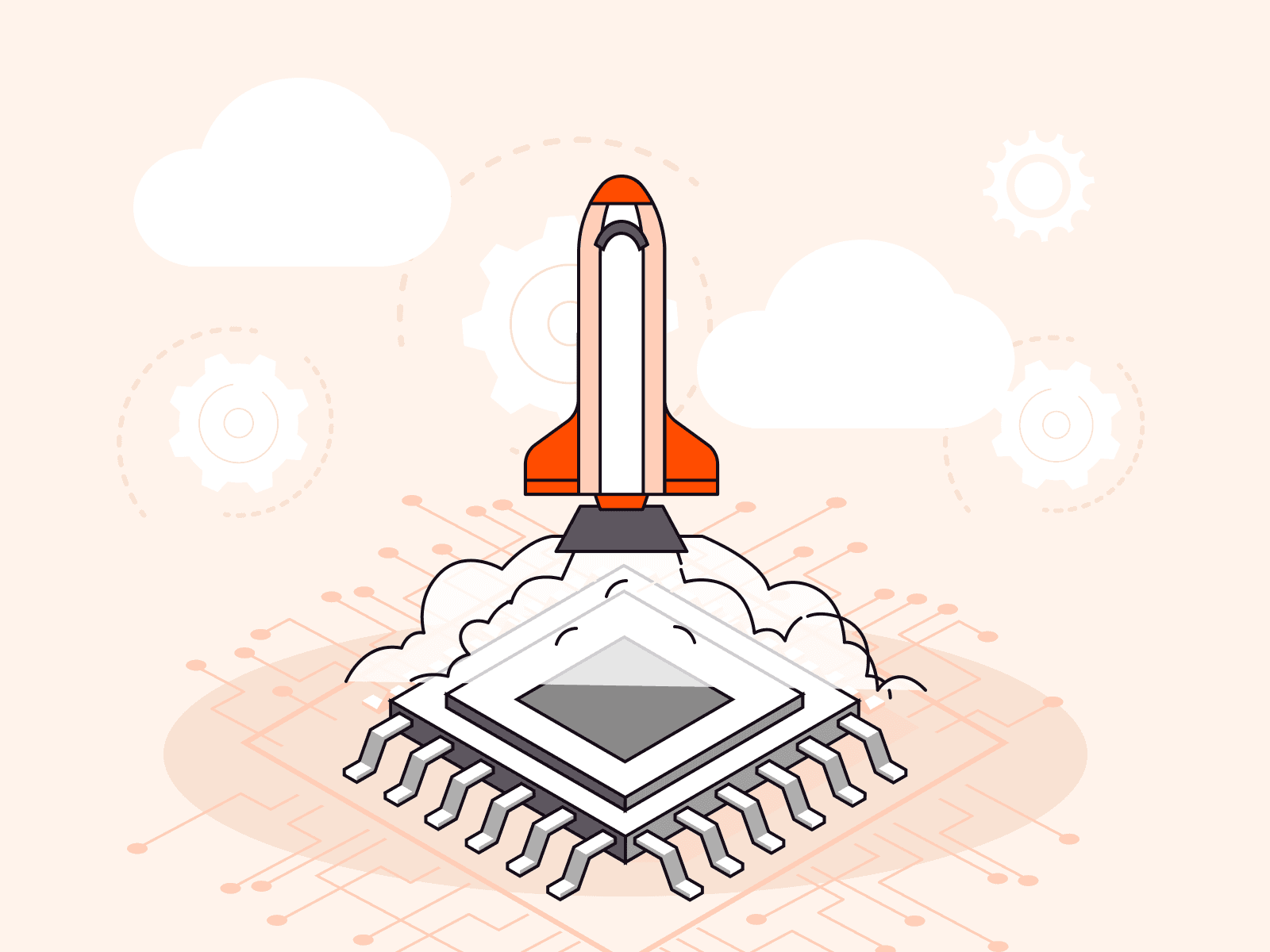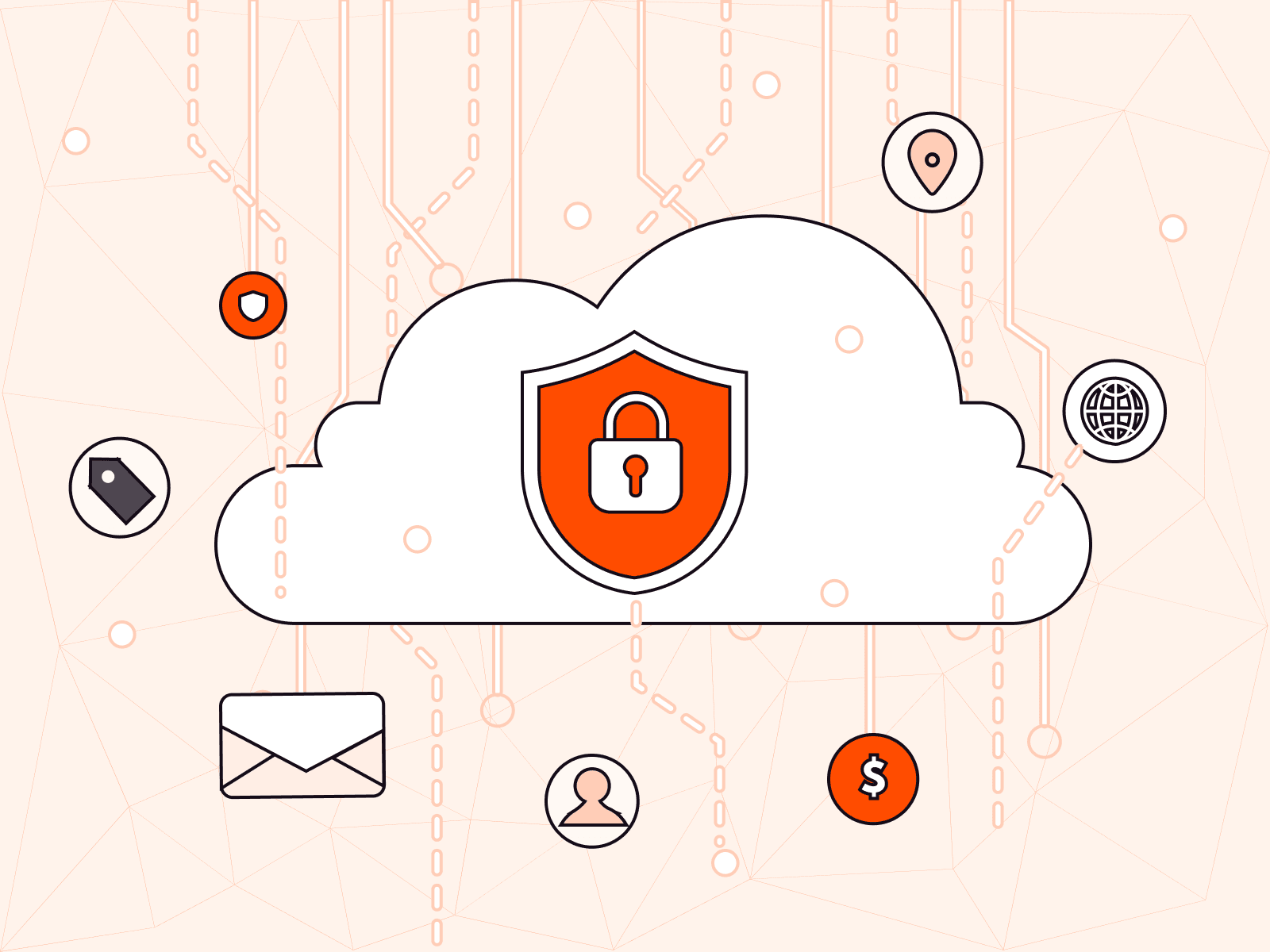Cloud vs hosting: which should you choose?
- April 16, 2021
- 5 min read

To host applications on the Internet, people normally choose hosting services. But, as cloud services develop more and more, many consider them as an alternative to hosting.
Hosting and clouds are somewhat similar, but they are still different solutions for different tasks. Let’s see what their differences are and which option is right for you.
Hosting and clouds—what do they have in common?
In both cases, you buy server computing power. You connect to them via the Internet and use them for your own purposes.
When it comes to hosting, you can rent a virtual (VPS) or physical (dedicated) server.
It’s the same with the cloud. You have the option to connect a virtual machine or rent an entire physical (bare metal) server.
There are other similarities as well. But let’s talk about the differences now.
VPS hosting and virtual machines in the cloud
VPS hosting features

This type of hosting allows you to rent space on a single server.
You utilize a portion of that server’s capacity. Other customers also use it. Each user is allocated a guaranteed and strictly limited amount of resources. This is called a virtual machine.
When you connect to a VPS, you use a virtual machine with a specific configuration: it has a specific number of virtual processor cores, amount of RAM, and disk space.
It means that the amount of resources you have at your disposal is limited. For example, in our hosting, you can connect to a virtual server with a maximum memory capacity of 32 GB and a maximum disk size of 1,200 GB.
Hosting is billed daily.
VPS compared to the cloud has fewer possibilities in terms of scaling and changing the resource consumption. If you need to change the server configuration, you will need to switch to another billing plan. All changes are possible only within the existing plans. Also, you will not be able to switch to a less powerful configuration if you need fewer resources.
Hosting management is carried out through the control panel. In our hosting, we have ISPmanager, a convenient and intuitive tool that allows you to work with the server and websites through a simple UI.
The security of the data stored on the hosting depends on the provider. The best options that hosters currently offer are DDoS protection, firewalls, and SSL certificates.
Features of virtual machines in the cloud

A cloud solution is quite different from a hosting service. You don’t pay for the server, but for the infrastructure.
With hosting, you can rent space on one server, while in the cloud you can connect several virtual machines at once and join them into a single network.
As a result, you get more resources: hundreds of gigabytes of RAM and tens of thousands of gigabytes of disk space.
You can assemble each virtual machine yourself to suit your tasks.
Cloud services are billed per minute. You only pay for the resources that you have actually used.
Virtual machines in the cloud provide flexible and scalable infrastructure. You can increase or decrease power consumption at any time with just a few clicks.
Clouds are perfect for developing applications. You can quickly deploy test environments to test your programs, and disable unnecessary resources later.
The infrastructure is managed via an API. This is a more complex approach. To work with resources, you need certain knowledge and skills. But your options aren’t limited to those in the control panel.
Recently, the Gcore Cloud got its own Terraform provider, making infrastructure management even easier.
There are also many additional services and tools in the cloud that hosting can’t offer. For example, snapshots for easily returning to the previous state of a virtual machine, and load balancing across virtual servers.
In terms of security, clouds also trump hosting. In addition to DDoS protection and firewalls, many cloud services obtain certificates confirming their compliance with the proper security requirements. For example, our cloud has a PCI DSS certificate. This means that user payment data can be processed on our servers. We guarantee its full protection.
Hosting on a physical server or a bare metal server in the cloud
Dedicated server hosting

If you have chosen hosting on a dedicated server, you won’t share its resources with anyone. The entire server is yours, which means you have more computing power at your disposal.
Dedicated servers are billed monthly.
Apart from that, a dedicated server isn’t much different from a VPS.
Hosting management is also carried out through the control panel.
In terms of security, you have the same tools: DDoS protection, a firewall, and SSL certificates.
If you wish, you can rent multiple servers and even aggregate links using LACP. But you won’t be able to fully manage the server network, balance the load between servers, combine them into a common project, or provide different access rights to different users. Hosting doesn’t provide such functionality.
Bare metal servers

A bare metal server is a separate physical server that you buy in a cloud.
How does it differ from hosting on a dedicated server?
- Several bare metal servers can be easily networked without additional tools. You set up the infrastructure yourself and can fully manage it. For example, you can distribute the load between servers using balancers.
- It’s easy to increase or decrease the amount of resources consumed. If you urgently need to buy another server, you can do so very quickly, and it will be ready in a few minutes. Ditching an extra server is just as easy.
- Infrastructure is managed via an API. Just like with virtual machines, you can use Terraform to manage bare metal servers in our cloud.
- The servers are certified to meet security standards.
- Just like renting virtual machines in the cloud, there are many useful tools available that a hosting service can’t offer. For example, in our cloud you receive custom reports on resource consumption. You can use our marketplace and install ready-made solutions on servers.
- The services are billed per minute.
Hosting vs cloud

Conclusions: which solution to choose?
Hosting is a less flexible but simpler solution. Resources are easy to manage, but there are fewer options.
The cloud is a more flexible, complex, and comprehensive solution. By choosing cloud services you not only get the server’s computing power, but a full-fledged infrastructure. You need to know how to manage it. On the other hand, it can be customized precisely for your complex project.
When should you choose hosting?
- You have a simple project that doesn’t require a complex, extensive infrastructure.
- You just need to host an application on the Internet and make it available to users.
- You don’t expect strong and sudden traffic surges. Your resource needs won’t change dramatically, so fast scalability isn’t very important for you.
- You are satisfied with daily or monthly billing.
- You’re not going to store and process customer payment data or other data with a high level of confidentiality on the rented servers. A firewall, DDoS protection, and SSL certificates provide sufficient security for you.
A hosting service is a simple, economically advantageous, and very effective solution for more or less static projects without large traffic bursts.
What type of hosting to choose depends on your resource consumption. A VPS is suitable for medium-sized projects. For large-scale, resource-intensive applications, it’s better to choose a dedicated server.
Gcore hosting offers both virtual and dedicated servers. We have more than 25 locations around the world, excellent connectivity, many available configurations, and competent 24/7 tech support.
What tasks is cloud suitable for?
- You need an extensive infrastructure and the ability to manage its configuration.
- You experience traffic spikes when resource consumption increases dramatically. Easy scalability is a major factor for you.
- You need resources to develop applications. A cloud is perfect for such tasks. You can deploy test environments, define access levels for the development team, and use cloud tools to streamline and speed up development.
- You need space to store and process large amounts of sensitive data. Therefore, you need tools for working with databases and the highest level of security.
- You need load balancers, snapshots, virtual machine images, and other features that a hosting service can’t offer.
Connect virtual machines, buy bare metal servers, create a large-scale infrastructure and fully manage it in the Gcore Cloud! Use the tools of our powerful cloud to solve any tasks.
Still not sure which service you should choose? Start with a free consultation. Our experts will explain what is best for the successful implementation of your plans.
Related articles
Subscribe to our newsletter
Get the latest industry trends, exclusive insights, and Gcore updates delivered straight to your inbox.






